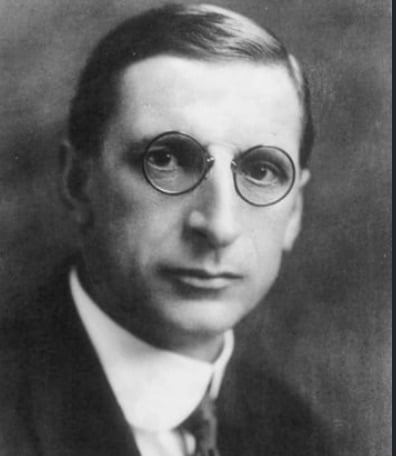
Éamon de Valera, was born on October 14, 1882, in Manhattan to Catherine Coll, an Irish immigrant, and Juan Vivion de Valera, a Spanish father of Cuban descent. Before his third birthday, De Valera was brought to the family home in Bruree, Co. Limerick, Ireland by his uncle Patrick Coll. Just over three years later, de Valera began his primary level education at Bruree National School. He spent eight years there, and was taught by John Kelly for at least one year, who had been described as “a young teacher and a brilliant mathematician who made a great impression on his famous pupil. On graduation, de Valera entered Blackrock College in Dublin.
At the end of his first year at Blackrock, de Valera was student of the year.and in the years that followed, won scholarships for his academic excellence. In 1903, he was appointed teacher of mathematics at Rockwell College, County Tipperary. It was here that de Valera was first given the nickname “Dev” by a teaching colleague, Tom O’Donnell. In 1904, he graduated in mathematics from the Royal University of Ireland and then studied for a year at Trinity College, Dublin. Unable to pay tuition for a second year at Trinity, he dropped out and returned to teaching. In the years that followed, he taught at various post-secondary institutions, including St. Patrick’s College, Maynooth and Belvedere College. De Valera subsequently studied mathematics at University College Dublin (UCD), where he also played Gaelic football. Éamon De Valera played a significant role in the 1916 Easter Rising, a rebellion against British rule in Ireland. He was a commandant and one of the leaders at Boland’s Mill in Dublin during the uprising.
Following the Easter Rising, de Valera was imprisoned in England and sentenced to death, but his sentence was commuted to penal servitude for life on account of his American citizenship. He was released in 1917 as part of a general amnesty and went on to become a prominent figure in the Sinn Féin political party.
De Valera served as President of the Republic from 1919 to 1922 and was a key leader during the Irish War of Independence. He played a role in negotiating the Anglo-Irish Treaty of 1921, that led to the establishment of the Irish Free State. However, he opposed the final form of that treaty because it divided Ireland into two separate countries. De Valera’s opposition created a split within the pro-independence movement, and he became the leader of the anti-Treaty forces during the Irish Civil War in 1922-23.
De Valera founded the Fianna Fáil political party in 1926, that became a major force in Irish politics. He served multiple terms as Taoiseach (Prime Minister) of Ireland, from 1932 to 1948, 1951 to 1954, and 1957 to 1959. De Valera later served as the President of Ireland from 1959 to 1973.
Éamon de Valera is a central figure in modern Irish history, having played a crucial role in the struggle for Irish independence, the establishment of the Irish Free State, and the shaping of the Irish Republic. His political career spanned several decades, and he is considered to have been a key architect of the modern Irish state. His legacy is a complex one, as he is celebrated by some for his role in securing Irish independence and criticized by others for his divisive approach during the Civil War and his long tenure in Irish politics.
Arguing that is was in Britain’s best interest to act fairly toward Ireland, De Valera stated, “It is indeed, hard for the strong to be just to the weak, but acting justly always has its rewards”
